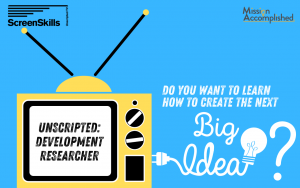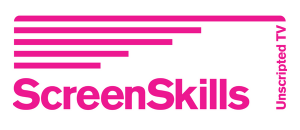Unscripted: Development Researcher training programme

If you answered Yes, then our Unscripted: Development Researcher training programme is for you!
Unscripted TV relies on ideas. Good ideas keep TV schedules full, viewers engaged and production companies in business. But where do they come from?
With an acute shortage of new development researchers, it’s more important than ever for the next generation of talent to find their feet in the world of unscripted development. Blending self-directed learning with live Zoom training, followed by a 1-month industry placement, this Unscripted: Development Researcher course will prepare you to hit the ground running in your first role as a Development Researcher.
Led by Development Executive and Series Producer, Perjit Aujla, the course focuses on the essential skills needed to work in development.
Course content will cover creative and ideation skills needed to generate exciting programme ideas, to editing and software skills needed to pitch them to commissioners. To support you in setting up sustainable development careers, the content will include vital communication skills which employers are looking for, and guidance on making yourself as employable as can be.
Following the course, trainees who complete the training will be matched with a Development Researcher placement in the development team of an unscripted production company. Testing your new skills and knowledge in a real company environment will consolidate what you learn and get you some industry connections along the way!
Unscripted: Development Researcher is open to a total of 60 people and will run with three cohorts. On applying, you will be asked to confirm your preference of dates and you are expected to be available for the duration of your chosen set. You will also be expected to be available for a one month full time placement following the completion of the training. We will endeavour to secure placements that begin immediately following the training but this may not be possible in all cases.
WHO IS THE COURSE FOR?
This course is aimed at those who want a career in unscripted and who:
- Are 18+ and not in full-time education.
- Have approximately 2+ years of work experience in ANY industry.
- Have demonstrable interest in a career in development.
You do not need to have worked in TV or development before to apply for this course.
We welcome applications for those looking to return to work following a career break.
This course is free to attend.
To ensure this training is accessible to the widest possible audience, the training will take place online and outside of standard office hours. Sessions will take place on weekday evenings, and some Saturday mornings.

This programme is supported by the ScreenSkills Unscripted TV Skills Fund which invests in training for the unscripted workforce thanks to contributions from BBC, Channel 4, Sky, A+E Networks UK, Discovery UK, Channel 5, Netflix, ITV, Amazon, UKTV and S4C matched by production companies.
We welcome applications from all individuals. If you would like support completing the application form and/or would like us to send it to you in an alternative format, please email training@mission.guru


 Alison Grade | Course Director
Alison Grade | Course Director